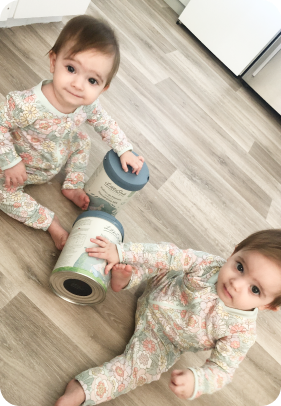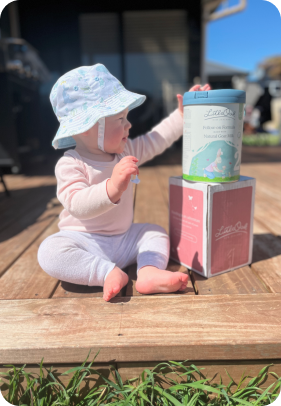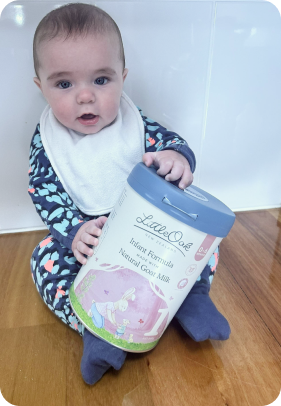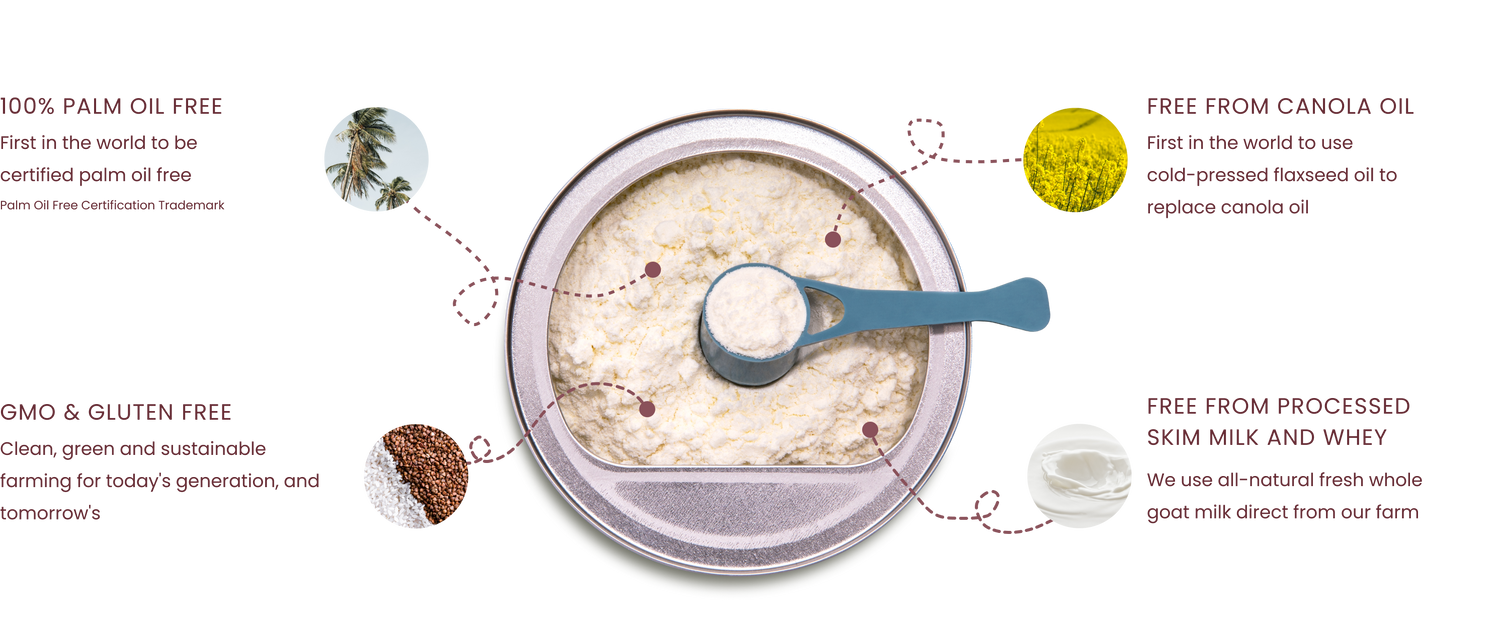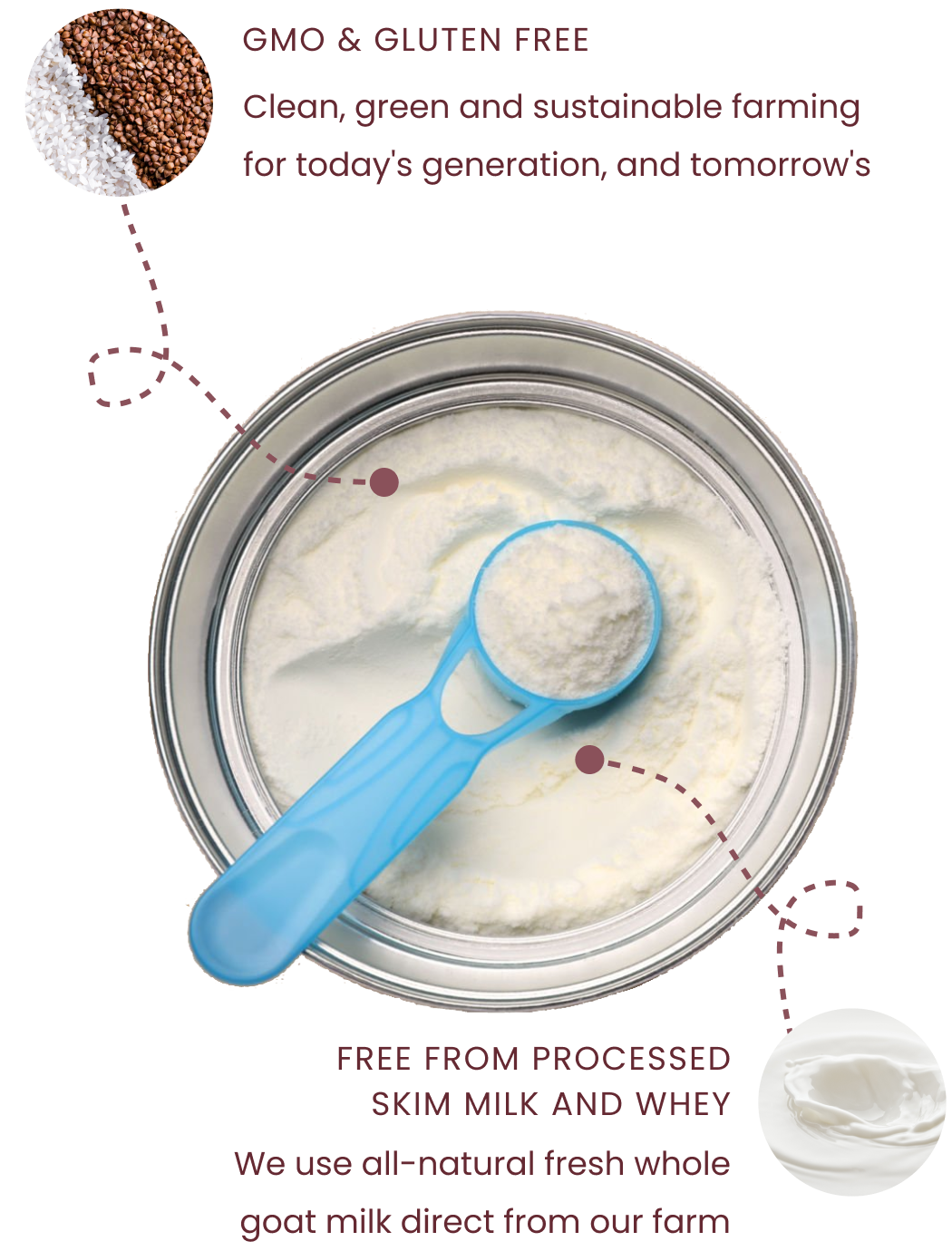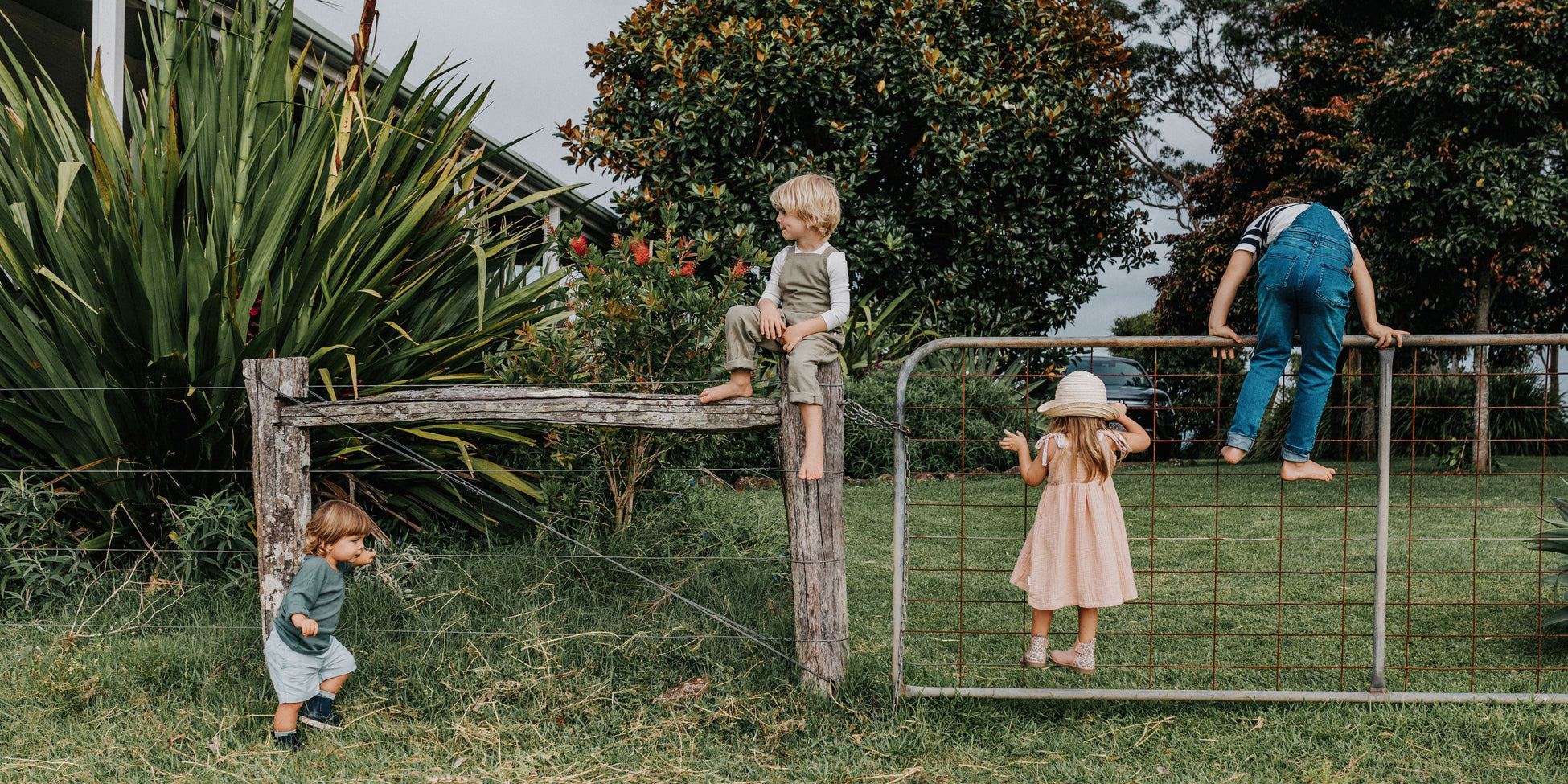Did you know that babies usually pass wind 13-21 times a day? Babies are particularly gassy because they have tiny, immature digestive systems and oftentimes inhale a lot of air during the day. This might be from feeding, crying or sucking a dummy, which inevitably leaves them a little gassy. Unless they seem uncomfortable or distressed, it's usually nothing to worry about and tends to ease up after 4-6 months. That said, if you think your bub is dealing with some gas and/or constipation, here are some tips that may help.
What causes gas and constipation?
One of the most common causes of gas and constipation is lactose. As a sugar found in milk products, lactose is broken down by a digestive enzyme called lactase. And when your small intestine does not make enough of this enzyme to effectively break down the sugar, you’re left with lactose intolerance. As a result, this could cause all that bloating, stomach pain and gas that your bub might be dealing with.
That’s why we only use fresh whole goat milk in our LittleOak products. Naturally A2 and lower in lactose than cow’s milk, LittleOak’s formulas and toddler milks are gentler on growing tummies. Better yet, goat milk is also high in prebiotic oligosaccharides, which can help with constipation by promoting the growth of good bacterium in the gut.
If your baby is transitioning from breastmilk (or a different formula brand) to LittleOak, it’s completely normal to see some gas and constipation. While some bubs take to change very easily, others might be more sensitive.
All this is to say, there’s no need to worry if your bub is a little gassy. It’s completely normal, especially if they’re adjusting to a new formula. Of course, we want our little ones to be as happy and as comfortable as possible, which is why we’ve pulled together some tips to reduce gas in babies.
Top tips to try today
- Consider your feeding position: make sure your baby’s head is above their stomach, as this will make it easier to burp out any air.
- Burp your bub: Burping your baby is a great way to help release that excess air. You can do this by gently patting your little one on the back. If this doesn’t do the trick, simply lay them on their back and wait it out before trying again.
- Massage time: Don’t we all love a good massage? By gently massaging your baby, you can help to move that extra gas. Lay them on their back and peddle their little legs back and forth. You can also hold their legs gently and move them together in circular motions.
- Encourage tummy time: while this is important for a range of developmental reasons, it also helps relieve gas due to the gentle pressure on your little one's tummy.
When to intervene
As we’ve said, it’s completely normal for your bub to be a little gassy. However, it’s important to keep a close eye on your little one in case there’s something else at play. If your baby is having trouble sleeping through the night, is constantly upset and fussy or is routinely pulling their legs up to their tummy, it is time to check with your doctor.
Remember that our Careline team is also always here for you and your new little one. We’re only a phone call away.
….
LittleOak has been nourishing children for many years and feeds millions of infants, babies and children across the globe each and every day, in countries such as Australia, New Zealand and Singapore. In the US, we're proud to have our FDA compliant Toddler Milk available for families














